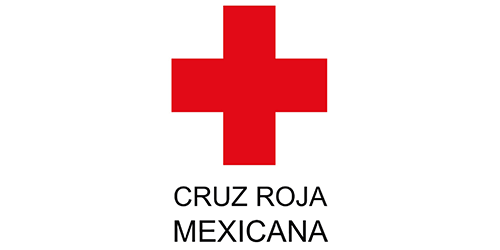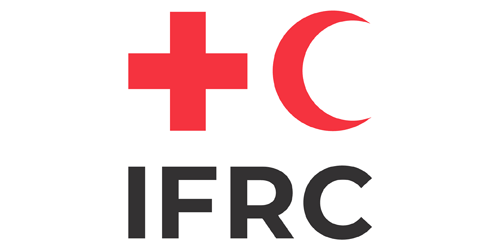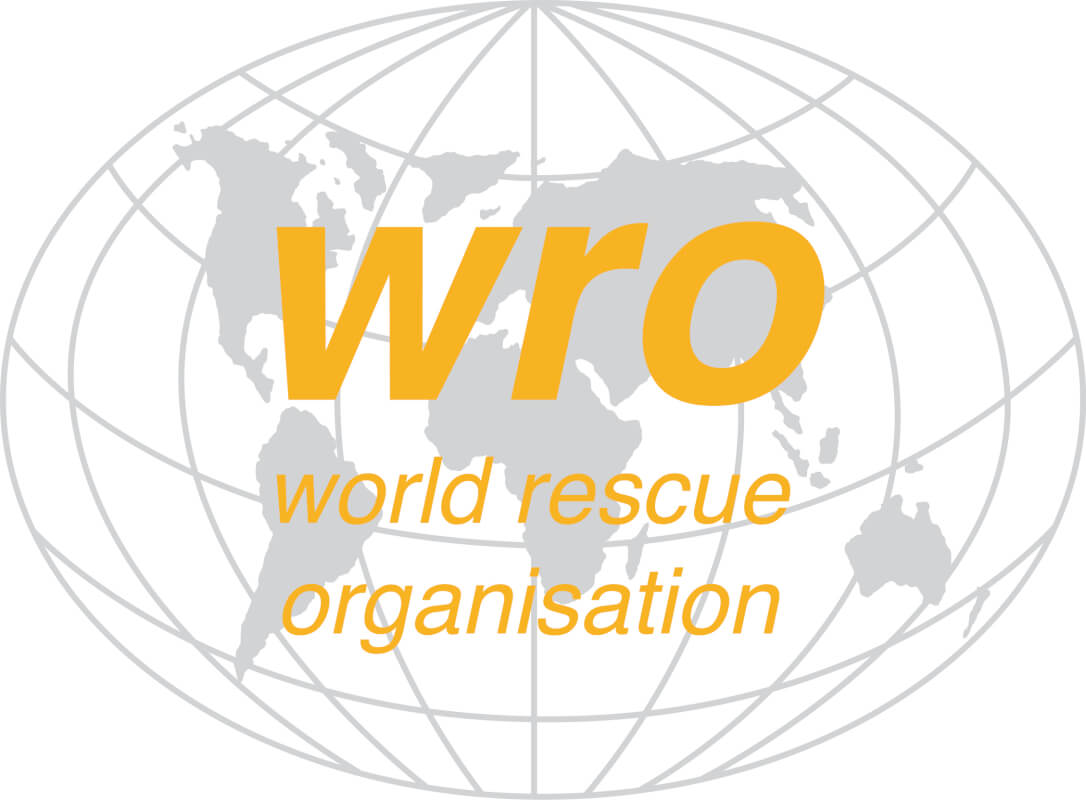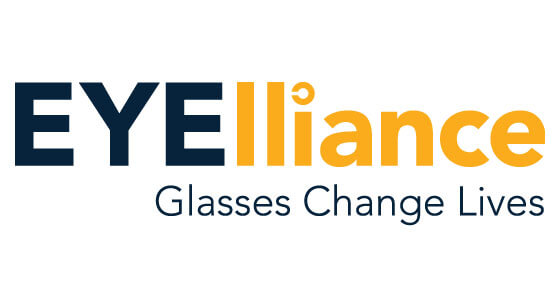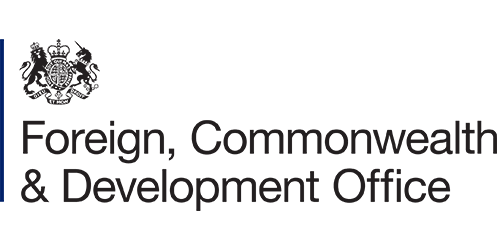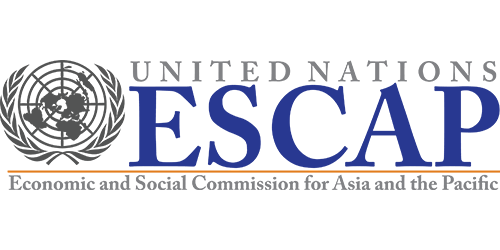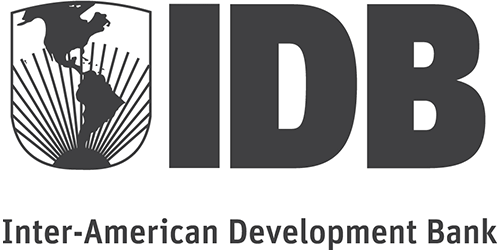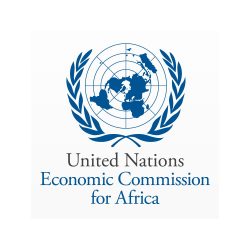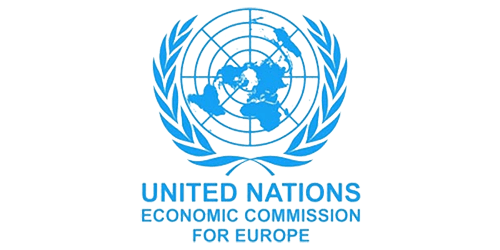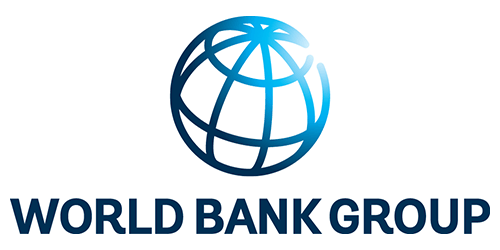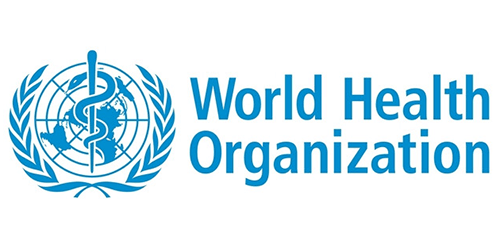
In 2020, Recommendations of the Academic Expert Group for the 3rd Global Ministerial Conference on Road Safety were published ahead of the Stockholm event. The report and a series of video presentations that explain the recommendations can be found here.
The recommendations included important explanations for how to improve road safety. One of the most significant opportunities explained related to ensuring the sustainability of businesses to contribute to the achievement of a range of Sustainable Development Goals. These included contributions concerning climate, health, and equity, and of course, road safety.
In 2020, Recommendations of the Academic Expert Group for the 3rd Global Ministerial Conference on Road Safety were published ahead of the Stockholm event. The report and a series of video presentations that explain the recommendations can be found here.
The recommendations included important explanations for how to improve road safety. One of the most significant opportunities explained related to ensuring the sustainability of businesses to contribute to the achievement of a range of Sustainable Development Goals. These included contributions concerning climate, health, and equity, and of course, road safety.
The recommendations explained that if organizations provided annual public sustainability reports including road safety disclosures, this would make a major global contribution. If organizations require the highest level of road safety according to Safe System principles in their internal practices, policies concerning the health and safety of their employees, and in the processes and policies of the full range of suppliers, distributors and partners throughout their value chain or production and distribution system, the combined effect would be substantial.
The recommendations went on to explain that the ten largest corporations are larger economic entities than many countries, with Walmart as an example, being the 10th largest global economic entity.
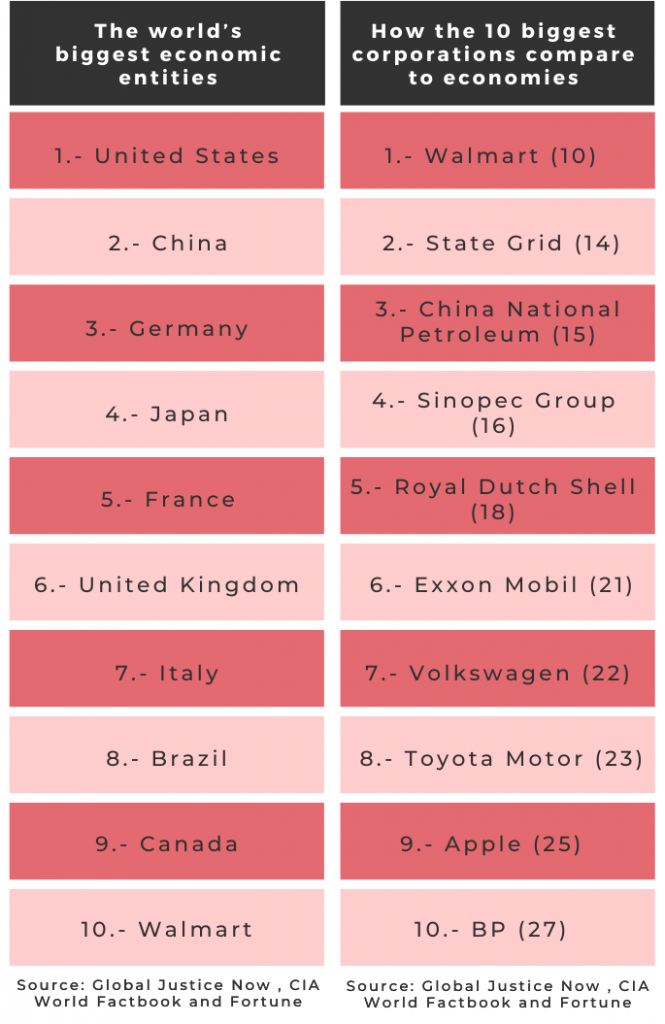
The World Economic Forum points out that a number of multinational corporations have grown to such a scale that they eclipse most national governments in gross annual revenue. If large organizations, including governments, put in place initiatives such as those listed below, there is a major opportunity to advance global road safety. Full recommendations are explained on page 32 of the report.
The recommendations highlight that the traditional assumption that road safety is solely the responsibility of governments needs to change. While some governments have led substantial improvements in road safety, relying on government leadership and regulation has not resulted in sufficient progress in recent years in most countries, there is much more to be done and this recommendation offers a way to accelerate road safety globally.
Dave Cliff
CEO, GRSP
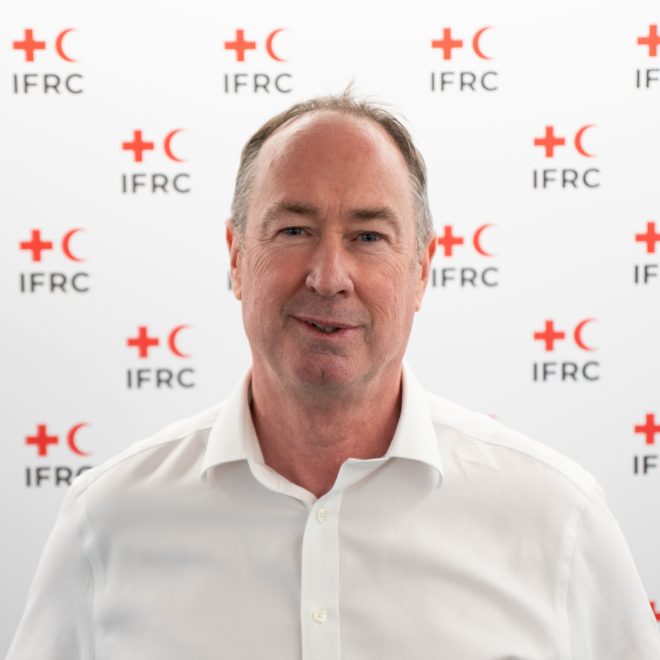
In June and July, the Global Road Safety Partnership (GRSP) and our partners at Johns Hopkins University International Injury Research Unit (JH-IIRU) held the inaugural Global Road Safety Leadership Course (GRSLC) Alumni Fellowship Project Showcase and Engagement Workshop from 26 June through 1 July.
During the workshop, Fellows from 2021 and 2022 were invited to Baltimore and New York City to network with GRSLC faculty at Johns Hopkins and participated in sessions with road safety experts across partner organizations, such as the International Road Assessment Programme (iRAP) and the Transport Accident Commission (TAC) of Victoria, Australia.
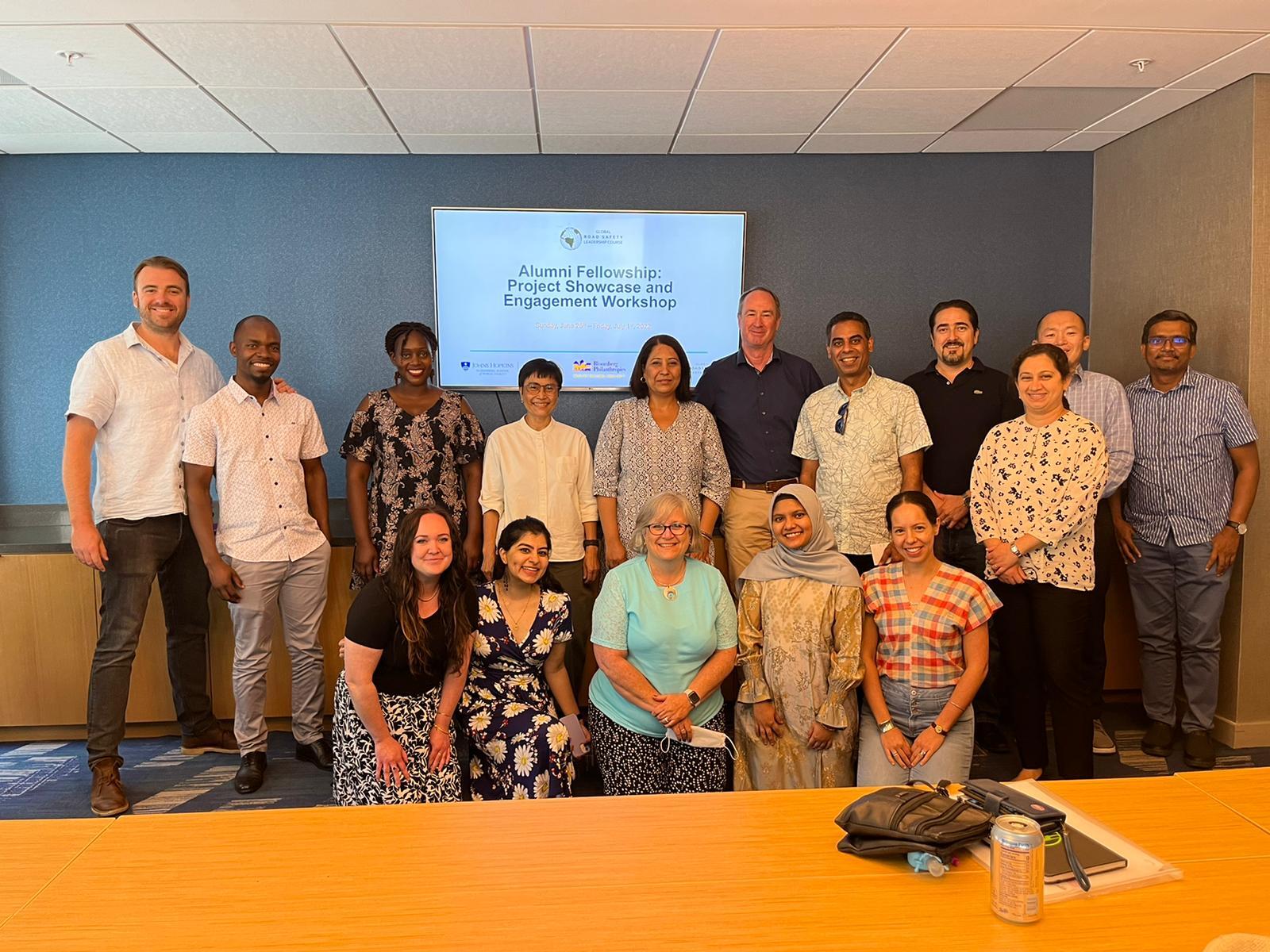
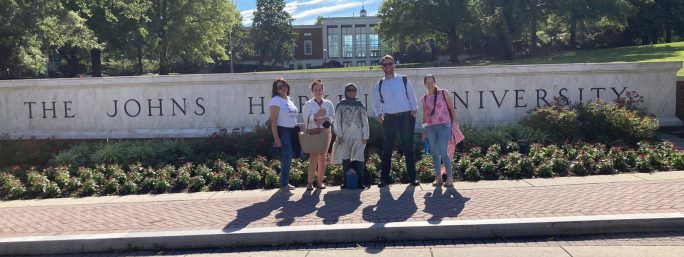
In June and July, GRSP and our partners at Johns Hopkins University International Injury Research Unit held the inaugural Global Road Safety Leadership Course (GRSLC) Alumni Fellowship Project Showcase and Engagement Workshop from 26 June through 1 July.
During the workshop, Fellows from 2021 and 2022 were invited to Baltimore and New York City to network with GRSLC faculty at Johns Hopkins and participated in sessions with road safety experts across partner organizations, such as the International Road Assessment Programme (iRAP) and the Transport Accident Commission (TAC) of Victoria, Australia.
The 2021 cohort, drawn from Malawi, Mexico and Thailand, was given the opportunity to present their fellowship project outcomes to Bloomberg Philanthropies. The 2022 cohort, drawn from Colombia, Indonesia, Malaysia, Mexico, Tunisia and Uganda, was given the opportunity to refine their road safety project proposals with their mentors.
The workshop was held in tandem with the UN High-level Meeting (HLM) on Global Road Safety in New York City, and participants were able to take part in events related to the HLM, including the UNICEF event on child road safety, a tour of the UN building, and a reception at Bloomberg Philanthropies.
Estiara Ellizar, an alumni fellow from the second cohort, also represented Indonesia and spoke at the UN HLM. During her participation, she emphasized the need for younger generations to be represented in road safety and decision-making processes.
GRSP is excited to join our partners in announcing the upcoming Global Regional Road Safety Observatories (GRRSO) Dialogue on Powered Two-Wheeler Safety from 11-12 October 2022. The event will be held in a hybrid format at the ADB Headquarters in Manila, Philippines.
The event will bring together an unprecedented range of global experts and practitioners striving to address deaths and serious injuries resulting from motorcycle crashes. Additionally, it will provide a unique opportunity to address issues relating to countries and cities where powered two-wheelers are the predominant form of transport.

GRSP is excited to join our partners in announcing the upcoming Global Regional Road Safety Observatories (GRRSO) Dialogue on Powered Two-Wheeler Safety from 11-12 October 2022. The event will be held in a hybrid format at the ADB Headquarters in Manila, Philippines.
The event will bring together an unprecedented range of global experts and practitioners striving to address deaths and serious injuries resulting from motorcycle crashes. Additionally, it will provide a unique opportunity to address issues relating to countries and cities where powered two-wheelers are the predominant form of transport.
There will be sessions with presentations, extensive dialogue sessions for debate and discussion, an event communique, and a series of events including:
The APRSO Annual Meeting
The Asia-Pacific Road Safety Observatory (APRSO), a regional forum on road safety data, policies and practices, is holding its annual meeting on 13 October, after the Dialogue on Powered Two-Wheeler Safety event. The APRSO’s mandate is to enhance the protection of human life on the roads across Asia and the Pacific through generating robust road safety data, undertaking analysis, and developing policies for road safety actions in Asia and the Pacific member countries.
There is no cost to register for the events either in-person or online; however, those choosing to attend in-person will need to cover their own travel expenses.
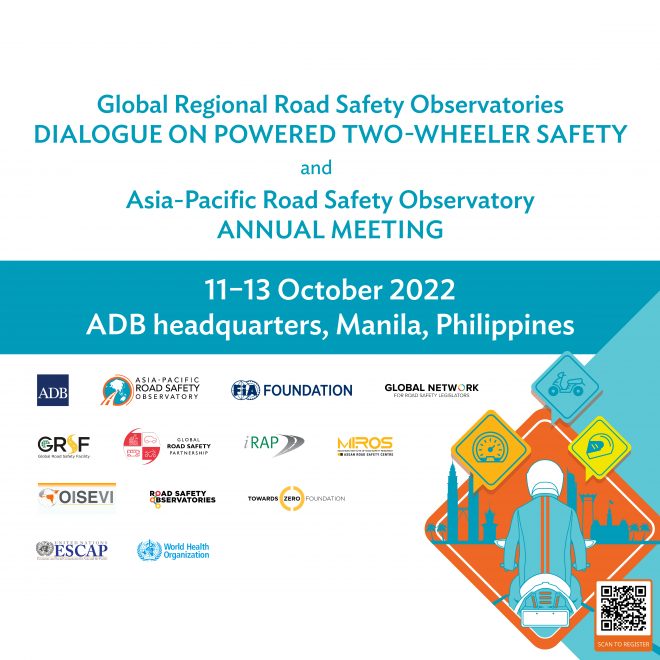
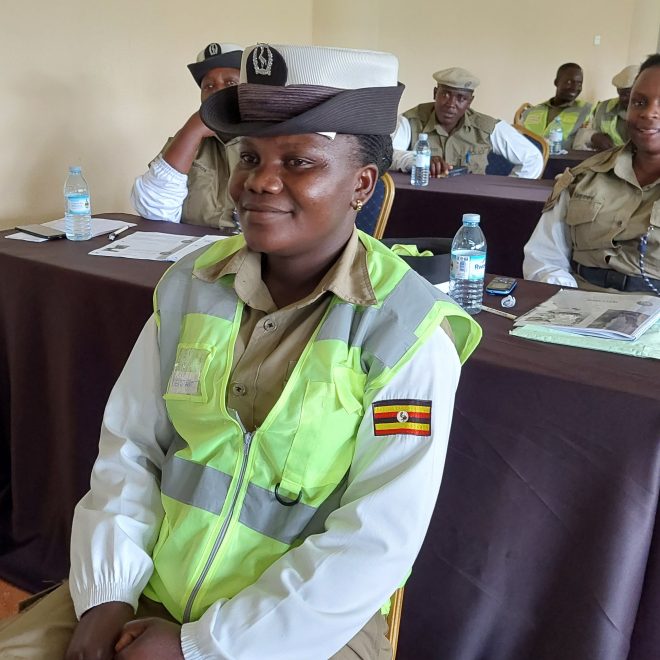
In both Addis Ababa, Ethiopia, and Kampala, Uganda, all planned Road Policing Capacity Building activities under the Bloomberg Philanthropies Initiative for Global Road Safety (BIGRS) are proceeding according to plan. Extremely good cooperation has been established with senior enforcement officers in both cities, and, as speeding is a major risk factor in the current phase of the BIGRS, most of our activities focus on speed enforcement training.
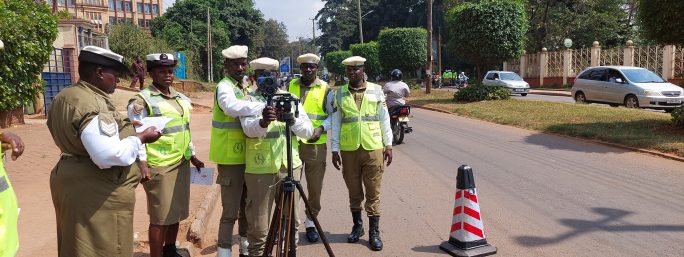
In both Addis Ababa, Ethiopia, and Kampala, Uganda, all planned Road Policing Capacity Building activities under the Bloomberg Philanthropies Initiative for Global Road Safety (BIGRS) are proceeding according to plan. Extremely good cooperation has been established with senior enforcement officers in both cities, and, as speeding is a major risk factor in the current phase of the BIGRS, most of our activities focus on speed enforcement training.
During the implementation of the programme in 2022, officers in Kampala and Addis Ababa were trained on how to effectively enforce speed limits, how to use speed measuring devices, and how to plan speed enforcement operations. In addition, traffic police units in both cities were equipped by GRSP with modern laser speed measuring devices.
The delivery of the programme so far, together with a strong commitment from the local police leadership, has resulted in the implementation of the Train the Trainer (ToT) model in Addis Ababa and Kampala.
As part of this activity, we have instructed groups of local trainers in both cities who will be able to conduct further speed enforcement training sessions, in accordance with contemporary best practices adopted from the sessions GRSP has conducted. Following this, a special programme for speed enforcement ToT training has been prepared with content related to road policing, information on the preparation of training materials, conducting trainings, motivating participants, and organizing breakout rooms and discussion panels.
The next step in the ToT model will be for selected trainers to develop their own training materials, which will have to contain key content relating to effective speed enforcement that adapts to and considers local context and legislation. Before being used for training, these materials will be reviewed by GRSP road policing experts to be approved for use. Moreover, the internal training itself will be supervised by GRSP to ensure a high level of professionalism.
The establishment of a ToT model in both cities will provide a more flexible and sustainable capacity building programme, which will lead to a larger number of trained enforcers beyond the selected jurisdictions.
The latest Road Policing Capacity Building activities in Accra and Kumasi have been exceedingly successful, as they comprised back-to-back practical and theoretical sessions throughout the months of June and July.
GRSP delivered speed enforcement training sessions for MTTD Kumasi Police officers and several Kumasi Metro guards, allowing them to tackle activities under real road conditions.
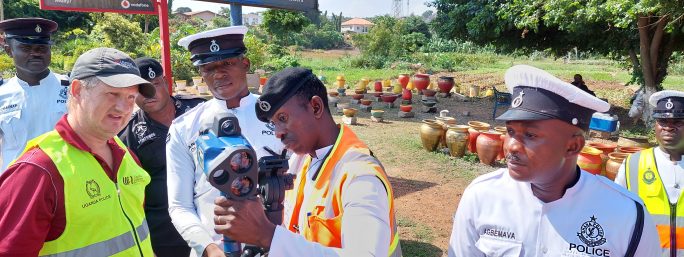
The latest Road Policing Capacity Building activities in Accra and Kumasi, Ghana, have been exceedingly successful, as they comprised back-to-back practical and theoretical sessions throughout the months of June and July.
During June, GRSP delivered speed enforcement training sessions for MTTD Kumasi Police officers and several Kumasi Metro guards, allowing them to tackle activities under real road conditions. Additionally, this proved to be a valuable opportunity to put into practice the SOP (Standard Operating Procedure) for speed enforcement, which resulted in well-conducted and safe operations. Throughout the course of the practical sessions, 28 drivers were stopped for failing to comply with traffic regulations.
The second workshop, held a few days later, focused on speed and helmet-wearing enforcement principles in Accra. Officers were provided with information regarding their own safety during roadside checks.
In July, MTTD officers in Accra and Kumasi attended training sessions on the proper use of speed measuring devices, together with an official handover of brand-new equipment. The practical workshops allowed them to test the devices under real road conditions, both during the day and night. The operations in both cities allowed a total of 74 officers to explore and learn about the devices’ distinctive features, including the Nighttime Infrared Illuminator and the automatic measuring mode.
To close off the activities in Ghana for the month, a training session was held that focused on the four behavioural risk factors: drink driving, speeding, and the non-use of motorcycle helmets and seat-belts. The importance of basing enforcement actions on deterrence theory principles was also explained to the 43 Kumasi Metro guards and four municipal clerks who attended. Their engagement was clear throughout the period that training was delivered.
Altogether, the series of theoretical and practical road policing workshops hosted in Ghana helped strengthen the capacity of officers to enforce road safety laws.
![]() Watch the video!
Watch the video!
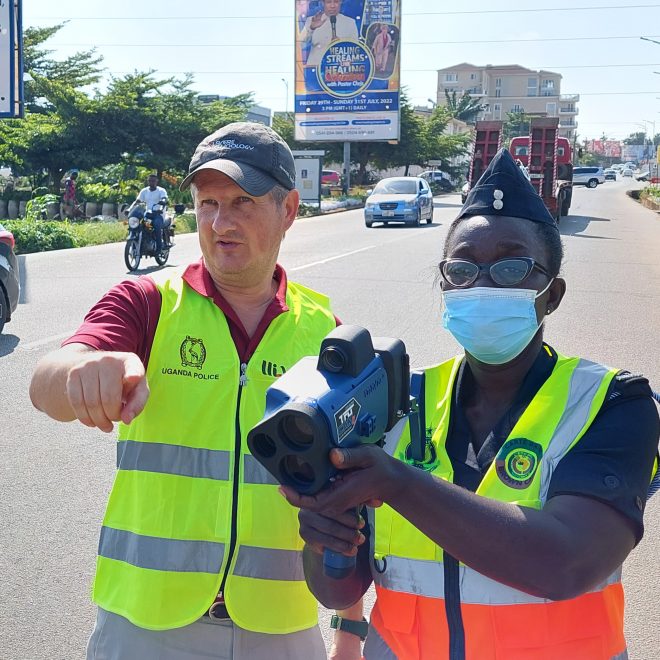
What is VIA to you?
VIA for me and for JA Brazil is a great opportunity for us to contribute to one of the main problems of our country. Talking about road safety, beyond talking about the life risk, is talking about what kind of education our people are receiving to live in an orderly society, respecting the limits of what we can and cannot do while living with other people, and considering that our needs are not the only ones in the world. It is an opportunity for us to talk about ethics, rules, and conscience.


What is VIA to you?
VIA for me and for JA Brazil is a great opportunity for us to contribute to one of the main problems of our country. Talking about road safety, beyond talking about the life risk, is talking about what kind of education our people are receiving to live in an orderly society, respecting the limits of what we can and cannot do while living with other people, and considering that our needs are not the only ones in the world. It is an opportunity for us to talk about ethics, rules, and conscience.
What are your hopes for VIA?
We hope that VIA’s way of communication with our public is going to be so simply understandable and we can create great connection with their daily lives so we can inspire our students to have deep reflections about their safety when on the road and it inspires them to influence their close ones. We hope that we can make them relate in such an easy way that what we are teaching them stays with them, and that they can still talk about safety beyond the life of the programme.
Tell us about the implementation of VIA in Brazil.
In 2022, VIA in Brazil is going to impact more than 11,000 students from five cities, in different regions of the country. Counting on Junior Achievement’s expertise in gathering schools and communities to achieve the common goal of providing Brazilian children a greater education, students from 13 to 18 years old will enjoy six hours of VIA activities while in their schools to be inspired to improve their beliefs and behaviours regarding their own safety, mainly when walking, using public transportation and when riding a motorcycle.
How can VIA impact child road safety in Brazil?
VIA can impact child road safety in Brazil teaching the schools’ communities that it is a simpler matter than it seems, that we all can adopt simple habits and follow simple rules that will preserve everyone’s safety. Since education in the same baseline in such a huge and diverse country is not a simple task to be successfully given, we need to be as simple and inspirational as we can so our people can connect the learnings with their routines and don’t think about it as something distant or difficult.
Moving forward, how can Implementors strengthen the outcomes of VIA?
The implementing team in Brazil is focusing on strengthening the outcomes of VIA with the kind of connection built while doing the activities in the classroom. Adapting the content previewed in the manuals to daily life situations and local examples is the best way to make our hopes about VIA become true.
In March 2022, the VIA programme was launched in Madagascar with the support of the local TotalEnergies affiliate and ABCD, the local Implementing Partner. Since then, VIA was implemented in four schools engaging a total of 468 students between 15 and 23 years of age. The deployment was done in line with the VIA methodology and pedagogical approach which includes a minimum of six teaching hours over multiple sessions during which students have the time to learn, reflect and make the programme truly their own.
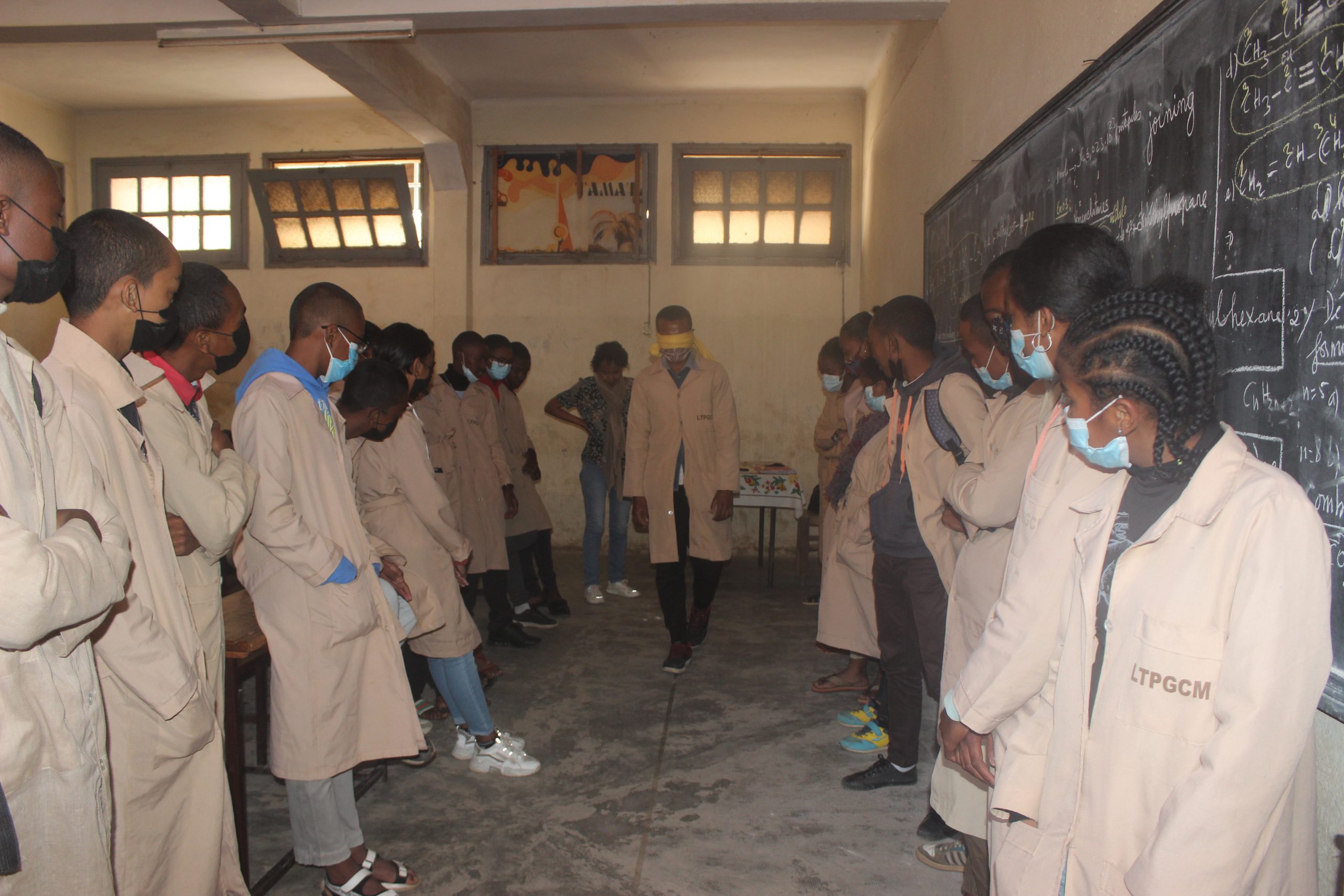
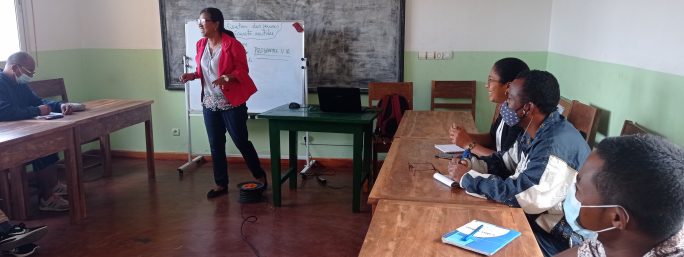
In March 2022, the VIA programme was launched in Madagascar with the support of the local TotalEnergies affiliate and ABCD, the local Implementing Partner. Since then, VIA was implemented in four schools engaging a total of 468 students between 15 and 23 years of age. The deployment was done in line with the VIA methodology and pedagogical approach which includes a minimum of six teaching hours over multiple sessions during which students have the time to learn, reflect and make the programme truly their own.
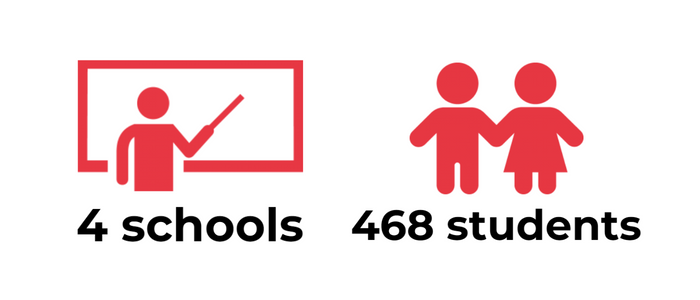
Activities such as “Distraction While Walking” and “The Interview” were instant hits. The former because it provided a first-hand example of how easy it is to be distracted in a noisy, busy, and concentration-demanding environment, and how dangerous it can truly be. The latter because it allowed for great discussion and analysis in partnership with the Land Transport Agency (Agence de transport Terrestre—ATT) who participated in the exercise.
The programme was also much appreciated by the TotalEnergies affiliates in-country.
We appreciated seeing the VIA programme develop in Antananarivo and engage several schools and many young people. In fact, the programme has been so successful that local teachers have chosen it as a model for their own classroom activities. We look forward to repeating and hopefully expanding the VIA programme in coming years in Madagascar.
Heritiana Ramakavelo, Responsible for RSE & Country Security Officer at TotalEnergies Madagascar
In the next two years, we are likely to see the continuation of the programme in the targeted schools thanks to the commitment of principals and teachers.
Within its network of road safety partners, GRSP works with a selection of National Road Safety Partnerships (NRSPs) which are locally registered, independent NGOs developing partnerships at the local and national level.
You’ll find updates from Indonesia and Hungary below.

Following the success of the first Indonesia Youth Road Safety Warriors 2021, the Indonesia Road Safety Partnership (IRSP) is pleased to announce the second Indonesia Youth Road Safety Warriors 2022 to be held from 20 September until 17 November 2022. The Indonesia Youth Road Safety Warriors is part of the national education programme from the Ministry of Education and Culture titled “Merdeka Belajar Kampus Merdeka” (Independent Study Independent Campus), equivalent to two semester credits.
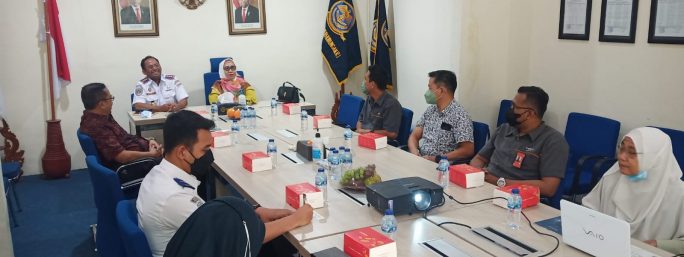
Following the success of the first Indonesia Youth Road Safety Warriors 2021, the Indonesia Road Safety Partnership (IRSP) is pleased to announce the second Indonesia Youth Road Safety Warriors 2022 to be held from 20 September until 17 November 2022. The Indonesia Youth Road Safety Warriors is part of the national education programme from the Ministry of Education and Culture titled “Merdeka Belajar Kampus Merdeka” (Independent Study Independent Campus), equivalent to two semester credits.
The programme was made possible through a partnership between the IRSP, the Ministry of Transport of the Republic of Indonesia, PT Astra Honda Motor, MIROS Malaysia and a selection of colleges.
The event began with a two-day webinar that was officially launched by the Minister of Transportation H.E. Budi Karya Sumadi on 20 September 2022, with an estimated audience of around 1,000 people.
Approximately 130 students from six colleges registered to participate in this programme: the Indonesian Land Transport Polytechnic (PTDI), Road Transport Safety Polytechnic (PKTJ), Trisakti Transport and Logistics Institute (ITL Trisakti), Gadjah Mada University, Mercu Buana University and Land Transport Polytechnic of Bali.
Throughout the programme, participants will learn about the principles of road safety, leadership and public speaking, life skills and social intelligence, road safety management campaigns, risk practices, first aid for traffic crashes, basic motorcycle techniques and mini-mentoring.
Last July, the IRSP team visited some colleges and partners for the preparation of the Indonesia Youth Road Safety Warriors 2022. In parallel with said preparation meeting, our Director of Training and Campaign Eko Reksodipuro gave a general public lecture about road safety to Road Transport Safety Polytechnic (PKTJ)’s students.
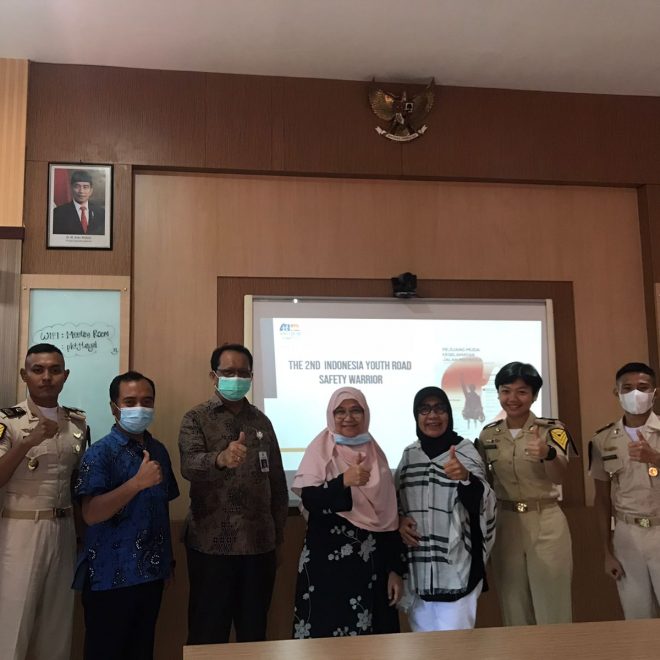
Throughout 2022, the Hungarian Road Safety Partnership (HRSP) has been engaging in a variety of projects with an array of stakeholders, all of which have been relevant components in Hungary’s road safety and safe transport culture.

The HRSP has been participating in the cooperation of professional training and examination of employees within railway traffic safety, as well as the functioning of the railway test centre, the issue of training licences, and railway driver practice rules.
Other aspects have been explored throughout the months, such as the cooperation on the digitization of railway training courses—especially the inclusion of methods used during the COVID-19 pandemic—and fruitful exchange of experiences.
Additionally, the HRSP has been collaborating in sharing good practice in the field of efficient operation of educational resources (classroom, simulation tools, trainers) between the service providers.
Timeframe: 25 February 2022 – 31 December 2022
HRSP agreed to produce the materials for the ‘KEVE’ programme (Let’s Travel Together and Let’s Take Care of Each Other) available to the Baranya County Police Department. HRSP will participate in the programme’s projects and will be of assistance during the dissemination process.
Timeframe: 23 March 2022 – 31 December 2022
During the Transport Culture Day in Hungary, Executive Director Mrs. M. Heinczinger presented the topic “Road Safety TODAY”, where she spoke about safe railway crossings and suggestions for improvement.
Timeframe: 11 May 2022
Together with Hungary’s Institute for Transport Sciences (KTI), the HRSP team partook in the examination of the current retraining system for drivers, an investigation of the legal environment and the exploration of development opportunities.
Timeframe: 12 May 2022 – 30 June 2022
The HRSP held a workshop on the development of voluntary transport retraining opportunities in the context of social expectations and the development of transport culture. The workshop served as an opportunity to present results and engage in professional discussions.
Timeframe: 10 August 2022
The development of a methodology for the traffic safety review of bus stations was executed by examining five locations. Thereafter, HRSP produced proposals to help increase the safety of vulnerable road users, such as pedestrians and cyclists.
Based on the results of the methodological investigation, the team prepared and implemented an intervention plan connected to at least 10 bus stations. Following this, a tender was developed aiming at the creation of a short video that addressed young people and the use of buses as public transport. The video presented four topics that represent relevant areas for Volánbusz, a Hungarian company that provides scheduled public bus transport services.
Additionally, the development of up-to-date pavement graphic proposals is to take place.
Timeframe: 24 May 2022 – 30 April/30 June 2022
The HRSP, together with Hungary’s National Transport Police and Road Safety Prevention Committee, prepared a series of professional road safety surveys and methodological recommendations. Topics such as: the willingness to wear a seat-belt, experiences concerning smart designated pedestrian crossings, pavement graphics and safe routes to school were examined and analysed.
Timeframe: 21 June 2022 – 31 December 2022

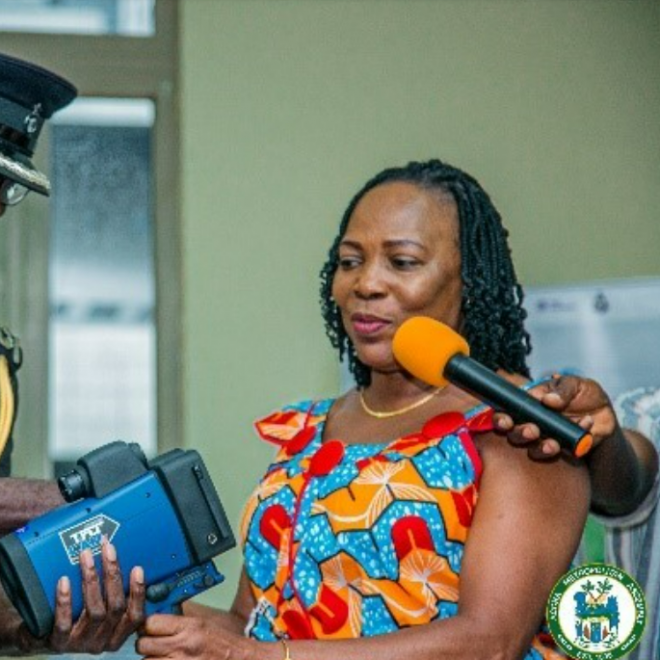
With support from GRSP through the Bloomberg Initiative for Global Road Safety (BIGRS), the Accra Metropolitan Assembly (AMA) donated six new TruCAM II speed detection devices to the Accra Motor Traffic and Transport Department (MTTD) of the Ghana Police Service to enforce speeding laws in Accra
At a brief donation ceremony organized to present the devices, which are the latest in speed detection device technology available to the police, the Metropolitan Chief Executive (Mayor) of Accra Hon. Elizabeth Kwatsoe Tawiah Sackey expressed delight at the newly acquired devices. She explained that it will propel the police to work with more professionalism while enforcing speed limits within the city.
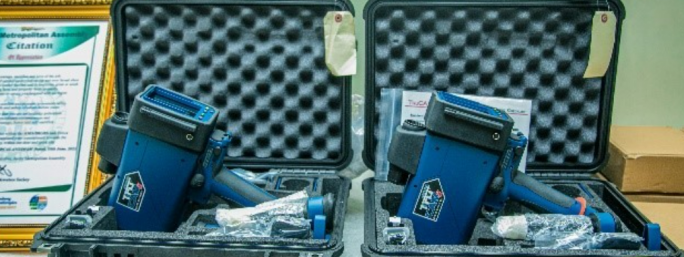
With support from GRSP through the Bloomberg Initiative for Global Road Safety (BIGRS), the Accra Metropolitan Assembly (AMA) donated six new TruCAM II speed detection devices to the Accra Motor Traffic and Transport Department (MTTD) of the Ghana Police Service to enforce speeding laws in Accra.
At a brief donation ceremony organized to present the devices, which are the latest in speed detection device technology available to the police, the Metropolitan Chief Executive (Mayor) of Accra Hon. Elizabeth Kwatsoe Tawiah Sackey expressed delight at the newly acquired devices. She explained that it will propel the police to work with more professionalism while enforcing speed limits within the city.
Director-General of Police MTTD DCOP Fosu Agyeman received the devices on behalf of the Police Administration and assured the donating partners that the devices will be used effectively to aid in the general reduction of road crash deaths and injuries. The Mayor of Accra also used the opportunity to express appreciation to members of the AMA/BIGRS Police MTTD Taskforce Team. She acknowledged their performance and encouraged them to keep engaging in risk factor enforcement in Accra.
Since its formation in 2017, the AMA/BIGRS Police MTTD Taskforce Team regularly enforce four risk factors including: drink driving, speeding, non-use of helmets, seat-belts and child restraints, among other engagements.
Submitted by Enforcement Liaison and Administrative Coordinator Joshua Mensah, on behalf of the BIGRS team based in Accra, Ghana.
In August 2022, representatives from GRSP’s Asia-Pacific Regional Office travelled to Viet Nam for a series of meetings with partners and stakeholders in preparation for upcoming capacity building training to commence. Asia-Pacific Manager Brett Harman and Senior Road Policing Advisor Craig Gillard were hosted by executive management at the Peoples Police Academy (PPA) in Hanoi, led by Colonel Assoc. Dr. Tran Hong Quang, who serves as deputy director for the institution.
Fruitful discussions and agreements resulted from the series of meetings, which will see capacity building training commence in the fourth quarter of 2022, with a programme scheduled through to the end of 2023. The training—in the first instance to be undertaken in conjunction with the PPA—will focus on training police personnel from both the Hanoi and Ho Chi Minh City (HCMC) Traffic Police. Our current programme will also see the commencement of training to Da Nang Traffic Police at a later time in the schedule.
In addition, the visit allowed GRSP to meet and forge strong working relationships with Deputy Head of the National Traffic Safety Committee Dr. Hung, and to personally meet with GRSP’s soon-to-be appointed in-country consultant and the Vital Strategies’ embedded team. Said stakeholders play an imperative role in our cooperative approach to improving road safety outcomes in Viet Nam.
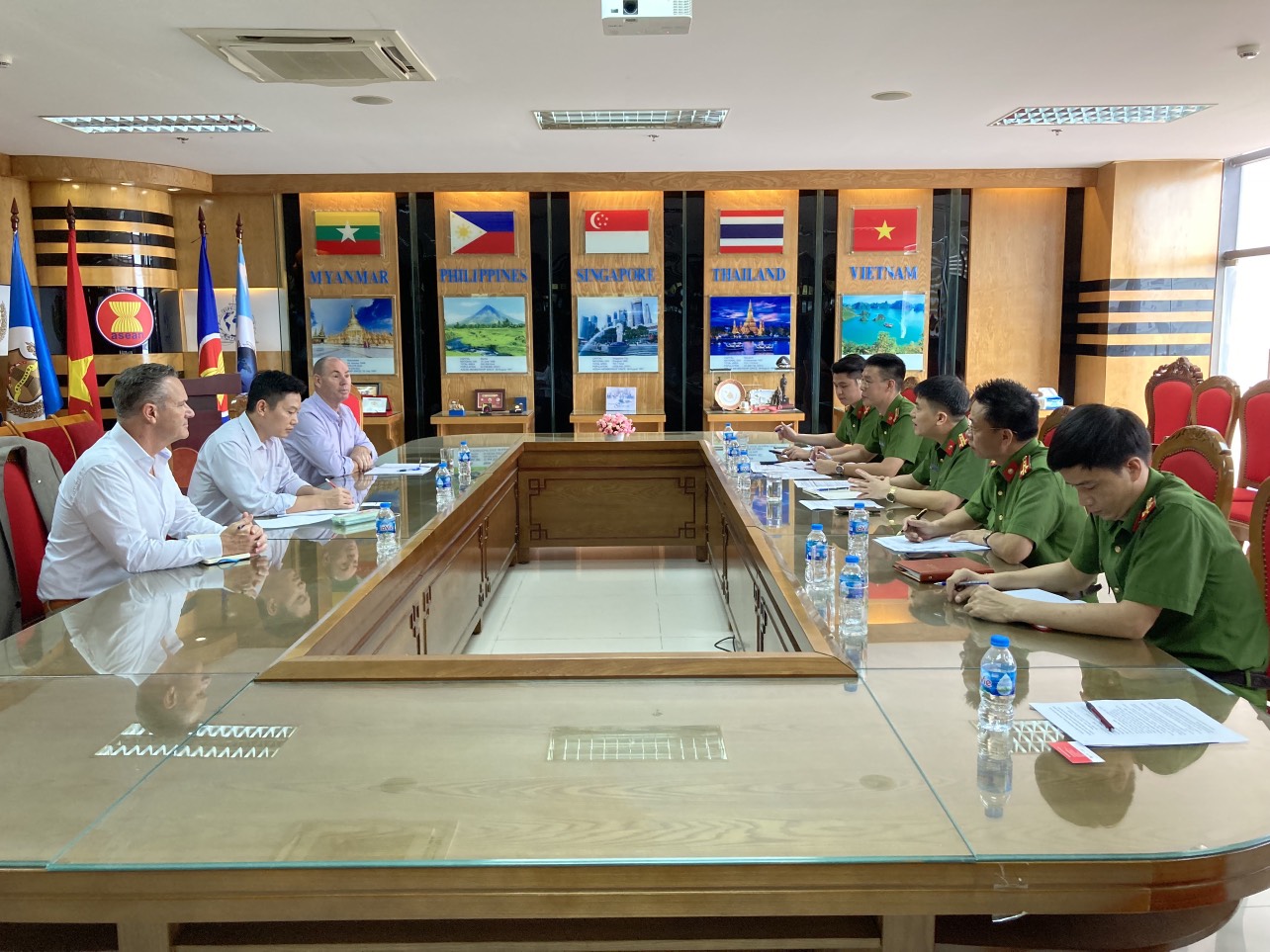
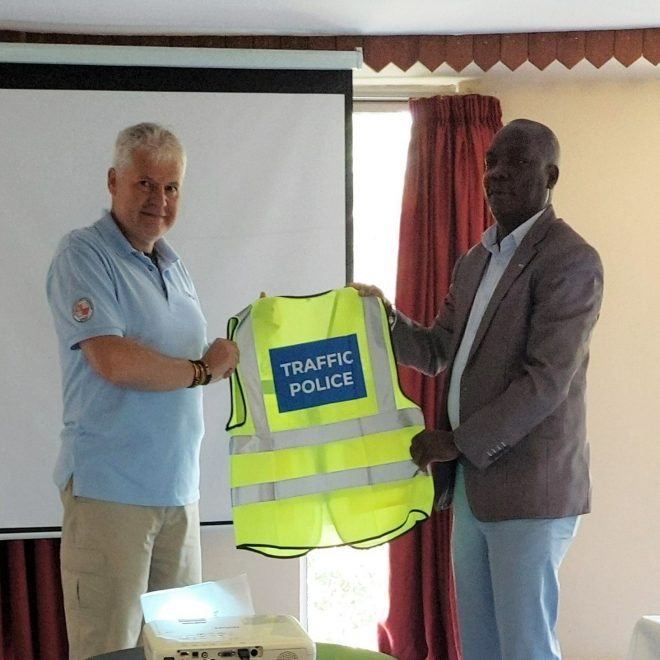
Under BIGRS’s Road Policing Capacity Building programme, GRSP procured 500 reflective vests for use by enforcement officers from the Kampala Metropolitan Traffic Police and the Kampala Capital City Authority. Senior Road Policing Officer Robert Susanj officially handed over the reflective vests to Commissioner of Police (CP) Acaye Philip on 9 August 2022.
During the event, Robert Susanj emphasized that the utilization of reflective vests will mean that the occupational health and safety of traffic officers working on the roads is improved. This will also ensure an increase in the scope and quality of enforcement.
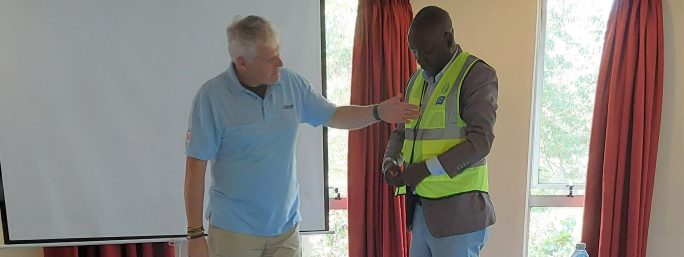
Under BIGRS’s Road Policing Capacity Building programme, GRSP procured 500 reflective vests for use by enforcement officers from the Kampala Metropolitan Traffic Police and the Kampala Capital City Authority. Senior Road Policing Officer Robert Susanj officially handed over the reflective vests to Commissioner of Police (CP) Acaye Philip on 9 August 2022.
During the event, Robert Susanj emphasized that the utilization of reflective vests will mean that the occupational health and safety of traffic officers working on the roads is improved. This will also ensure an increase in the scope and quality of enforcement.
Traffic enforcers in Kampala have undertaken a series of speed enforcement training sessions since the commencement of the programme, during which GRSP trainers have delivered workshops on the correct and safe implementation of speed enforcement. The donation of reflective vests wraps up the full procurement of appropriate road checkpoint equipment, including traffic cones, signs and batons, to ensure the safe implementation of speed enforcement operations.









